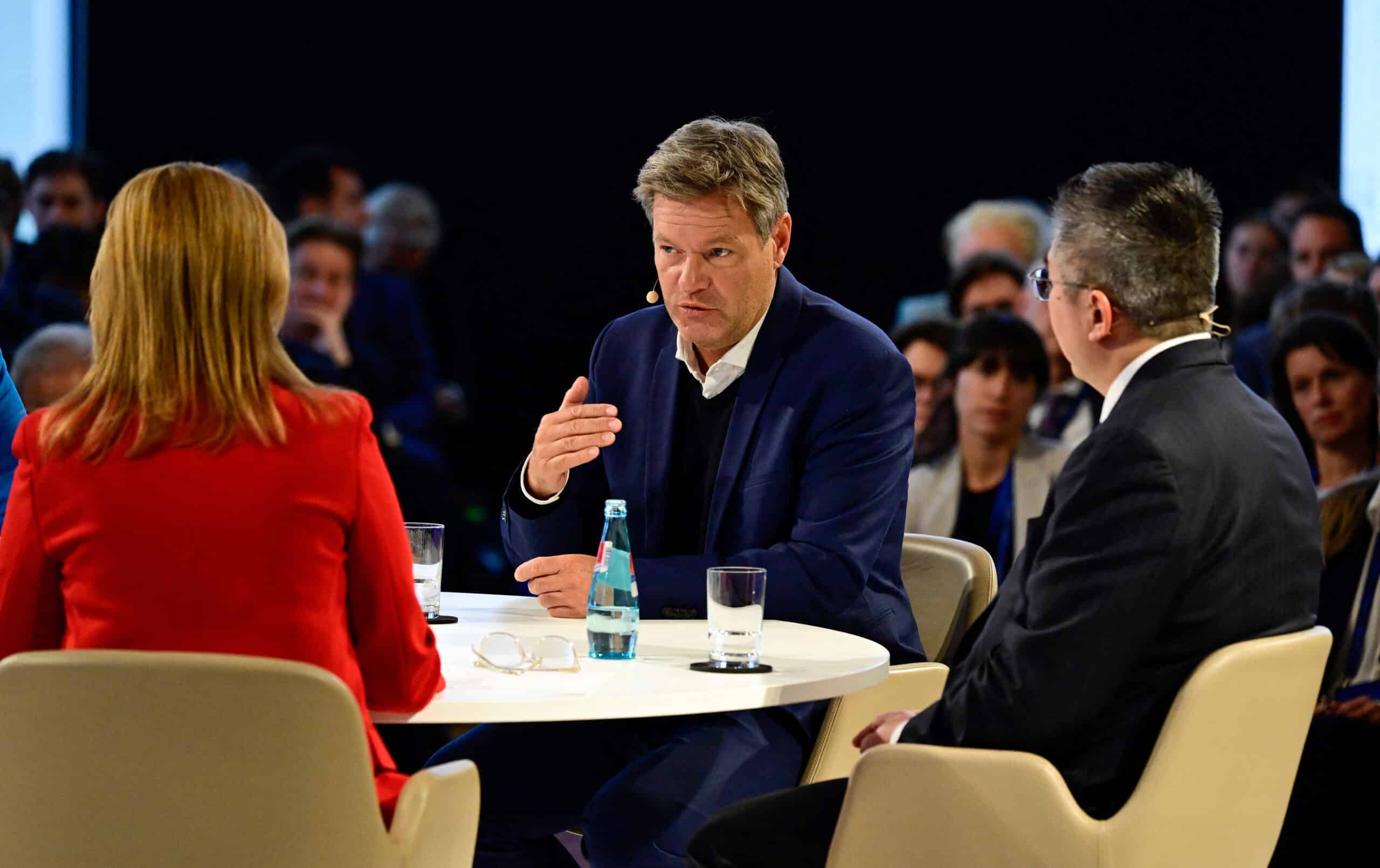German government expects another recession in 2024 – media

German Minister of Economics and Climate Protection Robert Habeck (C) takes part in a round table talk with Brian Gu (R), Vice Chairman and President of XPENG motors at the “Berlin Global Dialogue 2024” event taking place at the European School of Management and Technology (ESMT) in Berlin on October 2, 2024. (Photo by John MACDOUGALL / Agence France-Presse)
FRANKFURT, Germany — The German government has slashed its forecast and now expects Europe’s largest economy to shrink for a second year running as hopes for a consumption-driven recovery fizzle out, media reported Sunday.
The economy ministry sees the German economy contracting by 0.2 percent this year, a dramatic downgrade from its prior estimate of 0.3 percent growth, according to the Sueddeutsche newspaper.
Economy Minister Robert Habeck will officially unveil the latest forecasts on Wednesday, October 9.
READ: German economy to shrink again in 2024 – think tanks
Germany was the only major advanced economy to contract in 2023, hit hard by an industrial slowdown, cooling export demand, and surging energy prices following Russia’s invasion of Ukraine.
Expectations that easing inflation and the first interest rate cuts by the European Central Bank would drive a recovery this year have however seemed increasingly out of reach in recent months, as demand at home and abroad remained weak.
Germany’s leading economic institutes have also recently downgraded their forecasts, and now expect the economy to either stagnate or shrink by 0.1 percent this year.
“Instead of gaining momentum, the economy continues to be characterized by a general reluctance by consumers to spend,” the Sueddeutsche said.
The economic headwinds come as Germany also faces structural challenges including increased competition from China, a shortage of skilled workers and a complex green transition.
Nevertheless, the German government was optimistic in its outlook for 2025, the newspaper reported.
READ: German economy buffeted by ‘perfect storm’
Habeck’s economy ministry will on Wednesday say it now expects 1.1 percent growth next year, according to Sueddeutsche, up from one percent in the previous forecast.
By 2026, the economy is expected to expand 1.6 percent.
The government’s proposed “growth initiative” has a key role to play in the recovery, Habeck told the Sueddeutsche.
The measures include tax relief, permanently reduced energy prices for industry, less red tape, and incentives to keep older people in the workforce as well as attract foreign skilled workers.
“The German economy can grow significantly stronger in the next two years if the measures are fully implemented,” Habeck was quoted as saying.